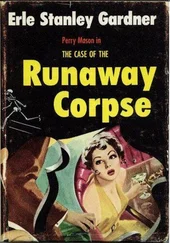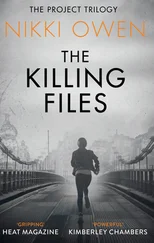I try to stay calm, try to think it all through but they overwhelm me. Dr Andersson’s words slam hard against my skull, and no matter how hard I try to stall it, my breathing becomes rapid, burning. The urge to feel something, to physically feel something, instantly, now, something tangible, real, rises up within me, because the words people say, I am discovering, they are like bubbles blown in the air: there one minute, gone the next. As if they were never made.
‘Maria?’
I ignore Dr Andersson and place my index finger on the scar beneath my blouse. The mark is bumpy and, when I apply pressure on it, the skin on either side feels tight. I press harder, then harder again, deep into the mark, sharp so I can feel it.
‘Maria,’ Dr Andersson says, ‘what are you doing? Stop.’
But a wave of pain hits me and her voice fades away. My pulse rockets, my brow sweats. Whether it is the throbbing of the scar or the heat of the room, I do not know, but I begin to remember something, like an image on a movie reel it clicks into view, appearing frame after frame, until it is clear, present, as if I were there. I hear it at first: the whoosh of an aeroplane engine. Then I feel it: cold air. We are somewhere mountainous, desolate, and when I scan the area I see that there, in the distance, shooting past, is heather, moorland. And then we are travelling higher. The air is thinner. My chest tighter. And then what I see next is what makes me freeze. A hospital bed. Lights. So many lights. Straight ones, round ones, square ones. They are so bright. Yet only one shape casts a shadow over them all: the figure of a man. A man wearing a mask, his eyes black as coal.
‘Maria? Talk to me.’
I can hear Dr Andersson’s voice, but it seems so far away, like a song in a valley, a whistle in the wind. I focus. The man in the mask is still there. Look at his eyes. His eyes! Look at them.
‘Maria?’
Her voice becomes louder. I can hear Erik Satie’s piano.
‘Maria, open your eyes.’
My heart punches my ribs. I choke as if no oxygen has touched my lungs for a long time. My eyes flicker open, my hands circle my neck, throat drawn, dry.
‘What just happened?’ Dr Andersson says, her voice like a blade. She grabs the remote and pauses the music. I blink as her face swims into focus. ‘How often has this been going on?’
‘Often.’ I swallow, search for water.
‘And in your head? Are you temporarily unconscious or do you recall things?’
‘Recall.’ My throat is dry. ‘I need a drink.’
She pours me a glass. I drain it and breathe out. I saw him again. I saw Black Eyes. I ask for more water, finish it and try to focus. Why did I see him? Why now? My hands tremble as I return the glass to the table. Dr Andersson watches. I don’t like what is happening to me, how it makes me feel, these moments of confusion fused with episodes of bitter, tainted lucidity.
Dr Andersson picks up her pad and scribbles some notes. ‘I think your memory is more challenged than I had originally thought.’ She holds her pen still. ‘Tell me, what did you see?’
I take in a breath and narrate the memory, and as I do, as I tell her my thoughts, clarity blooms in my head like a flower in spring: someone is after me. It all makes sense now. My father discovered information, linked to files, documents. Even though I do not fully understand what they were exactly, even though I cannot recall it completely yet, I know it happened. And Father Reznik used to make me practice codes, test out harder and harder ones on me, always tasking me with strange projects, projects that would involve deciphering data that led to war-torn countries, to odd scenarios. I wrote it all down in my journal at Mama’s house, and I have written some of it down in my notebook, here. It was all a game, the Father said, just brain training. But what if it wasn’t a game? What if he was using me? Did something happen? Did I discover something without realising? Something big? Is that why he left? I rub my forehead. I would often wake up in the vestry, him telling me I had fallen asleep. But did I? Is Papa the key? Is the memory of Papa, of his voice, of what he told me? And so if I recalled his voice here, in prison, finally, after all this time, after all these years of memory-compromising grief, will I hear it again soon? And what will it say?
My mind races past all the possibilities and I feel giddy with it all, as if I am opening up a sealed box for the first time. I have to get to my notebook. I look at the clock. Ten fifty-five. I am meeting Harry Warren soon. I have to get to Patricia, get to our cell, tell her all about these new thoughts, write them down.
‘I am seeing Harry Warren at eleven hundred hours,’ I say, immediately standing, feverish with fresh hope. ‘I need my notebook. I have to get it from my cell. Now.’
‘Wait! You can’t just-’
‘Now,’ I repeat, running to the door.
‘Maria, I need to know about this memory. Wait!’
But before she can stop me, before she can tell me I am losing my mind, I have opened the door and left, only just managing to suppress the laughter, the sheer joy that wants to erupt from deep inside me.
I arrive at our cell and scan the room. ‘Patricia?’ I wait, chest heaving. Nothing. ‘Patricia, I have something to tell you! I need my writing pad. I think I know what has been happening with-’
I step forward and halt.
Something is swinging at the back of the cell behind the shelf. ‘Patricia, Father Reznik was really…’
And that is when I see her.
Patricia, hanging above the toilet.
With her walking socks roped together around her neck.
‘Help!’ I scream. ‘Someone help!’
Guards rush into the cell and immediately radio for emergency assistance.
‘The rope, the socks,’ I say, fast, desperate. ‘We have to loosen them, get her out. Quick.’
I hold Patricia’s legs, feel the bones through her flesh as a guard frees her neck, her head flopping to one side, limp, lifeless. My friend. I fight back the tears, concentrate on what I am trained to do.
Once we have her down, I immediately start CPR. The heels of my palms press into her ribcage, pushing air into her. Then I tell the guard to copy me, to take over as I pinch Patricia’s nose, cover her mouth with mine and breathe into her. When the medical team arrives, they order me to stand back. My shoulders are heavy; my hands throb. I watch as they take over the cardiopulmonary resuscitation, wiping my face, not wanting the guards to see how I feel, how important Patricia is to me just so they can laugh.
‘Oi. Robot. Move back,’ says the guard.
‘Does she have a pulse?’ I ask the doctor.
But they all ignore me and, after dragging the trolley in, lay Patricia down, a mobile CPR unit next to it. Heart rate machine. Needles.
‘Get me the adrenaline and atropine,’ says the doctor. ‘And we’re going to need the defib.’
I stay very still. This is not good news, asking for the defib. A tear leaks out, one, sliding down my cheek. My friend. She is my friend. The guard looks at my face. I rub the evidence away.
A nurse attaches the heart monitor to Patricia’s chest while another holds a bag and mask over her face, over Patricia’s lily-white face. I watch, body stiff like steel, yet inside, I am a whirlwind, a rabid dog, diseased, broken.
The doctor presses the heel of his hands down on Patricia’s chest for CPR just as I did. ‘One, two, three, four.’ He looks to Patricia. ‘Breathe!’
The nurse checks the monitor. ‘She’s in VF.’
Another tear breaks out. I slap it back.
The doctor looks up. ‘Let’s shock her.’
The nurse hands him two defibrillator paddles.
Читать дальше
Конец ознакомительного отрывка
Купить книгу












